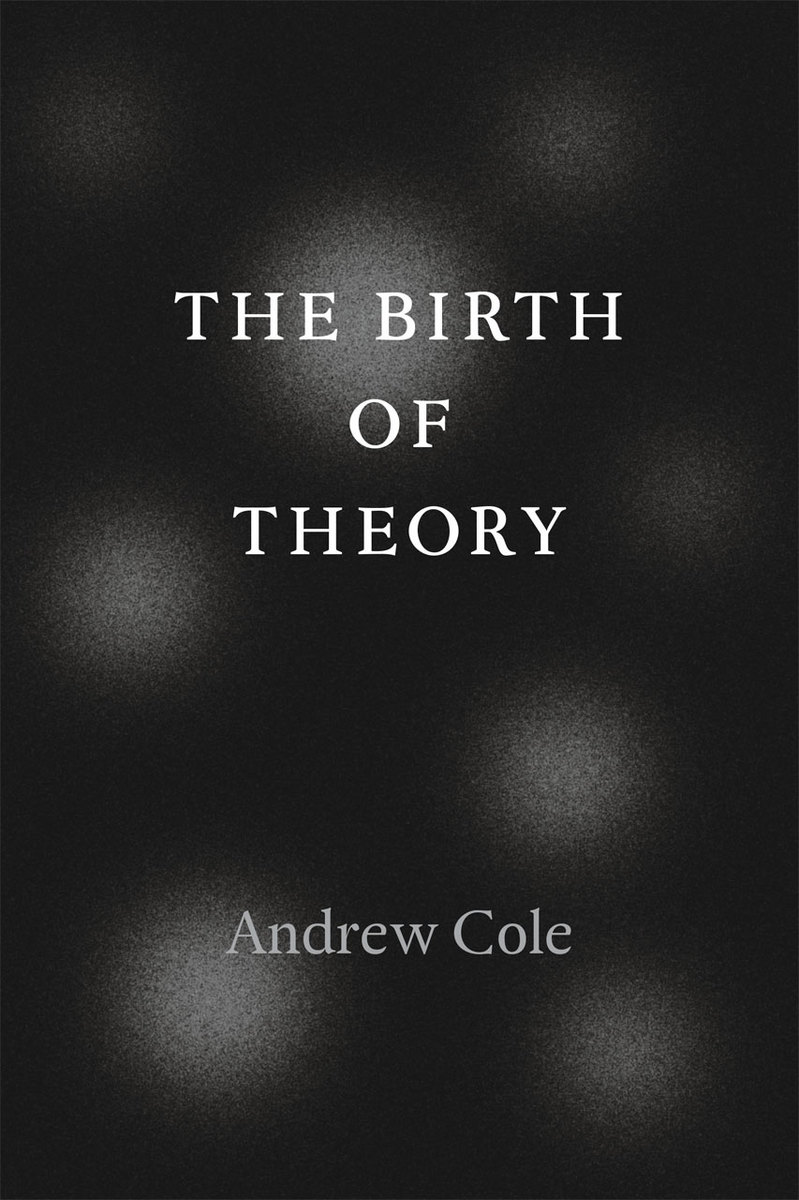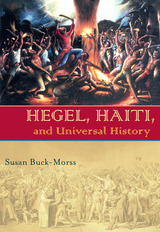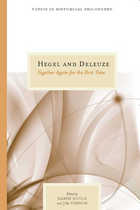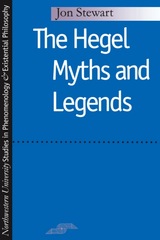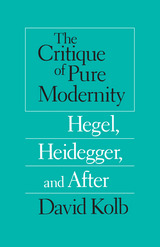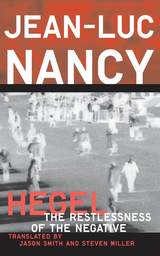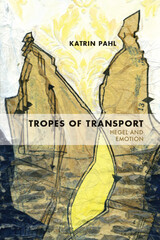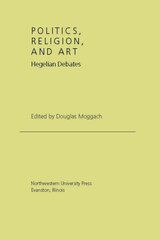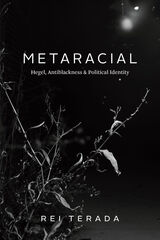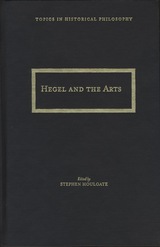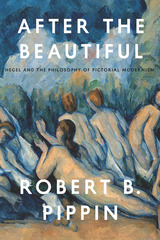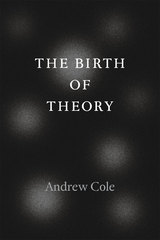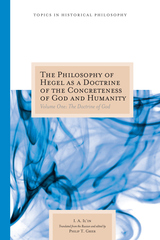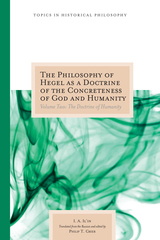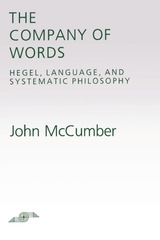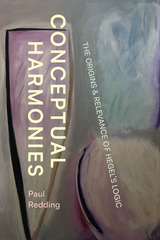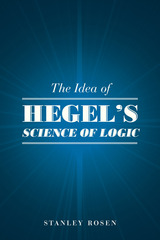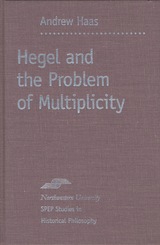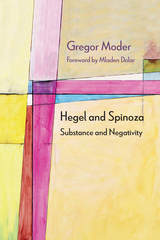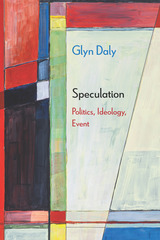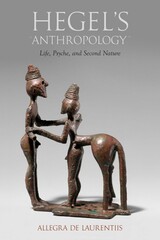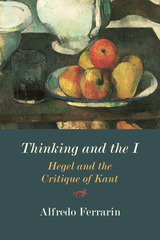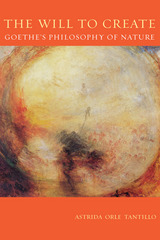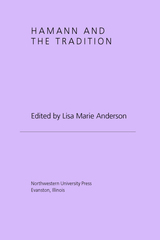“Cole’s The Birth of Theory is a daring, ambitious, and fabulously capacious work. The readings of Plotinus, Hegel, Nietzsche, and Deleuze would themselves be enough to recommend this wildly important book, but together they set the record straight once and for all: contemporary theory is born under Hegel’s shadow. But Cole’s Hegel is not the dialectical scapegoat of a Nietzsche or a Deleuze; he is the Hegel who returns to the medieval period and, in particular, to the medieval dialectic in order to establish the play between identity and difference that has defined theory from its beginnings, even in its Nietzschean and Deleuzian versions. In truly Hegelian fashion, Cole mobilizes the force and joy of his philosophical intelligence—as only a theoretically inflected medievalist could—in the direction of the most persuasive account we now have of theory’s origins. Brilliantly argued and beautifully written, this book shows us not only how theory was born but also why it is still very much alive and, in Cole’s hands, why it has such a compelling future.”
— Eduardo Cadava
“In this elegant and erudite book, Cole shows us a Hegel looking both backward to medieval philosophy and forward to contemporary theory. The result is a novel, brilliant interpretation of Hegel’s dialectic that makes it once again fresh and powerful today.”
— Michael Hardt
“‘Everybody is Hegelian without knowing it,’ Lacan famously maintained. Cole, in this highly original book, shows not only that this holds for the sworn anti-Hegelians, say Nietzsche and Deleuze, but also that most Hegelians at large are far less aware of what is at stake in dialectics than they can imagine. The aim of the book may seem paradoxical: to restore and rethink the premodern, the medieval and feudal setting of the origins of dialectical thought, yet this is the dialectical move par excellence: to return to the past in order to open up a new future. From Plotinus to Bakhtin, from Nicolas of Cusa to Fredric Jameson, from lord and bondsman to Wal-Mart, this work practices in grand style what dialectical thinking for our times ought to be.”
— Mladen Dolar
“Cole here sheds new light on the dialectic from an unexpected source: medieval thought and the medieval tradition. This is an exciting and groundbreaking work.”
— Fredric Jameson
"Birth of Theory is first and foremost a rehabilitation: one that cuts through the 'scrim' of what Hegelianism has become and takes us back to who Hegel himself was and what he 'actually said.' . . . The Birth of Theory reveals itself as not just an impressive combination of historical calibration and theoretical intervention, but rather as a methodological clinic in how to do theoretical and historical work now. What Cole demonstrates, in a final Hegelian lesson, is that we can no longer have one without the other."
— MAKE Literary Magazine
"An extremely important and timely book. . . . By arguing that Hegel recognized the cotemporality of the feudal and the modern-capitalist in his own time and thus was engaged in a form of 'materialist analysis' that is imbued with deep conceptual rigor, Cole can indeed make Hegel not only 'presciently Marxist' but valuable for future 'dialectical interpretation' of all sorts. We can look past the 'mediating scrim,' i.e., vacuous anti-Hegelian pronouncements, in so much theory, and recognize the close affiliation between Hegel’s dialectic (medieval and otherwise) and genuine critique. And by doing this, Cole has performed a great service to us all."
— Telos
“The Birth of Theory is an ambitious, original, lucidly-written, scrupulously-researched, sui generis book that is difficult to classify. . . . [It] contains local and global insights that are not to be missed: the intertextual allusions between Hegel’s early theological writings and Marx on commodity fetishism; the critique of political economy as ‘the otherwise hidden connection between Hegel and Bakhtin’; the centrality of a medieval dialectical hermeneutic not only to Hegel but also postmodernists like Jameson; and, above all, a Hegel of much wider relevance than the more specialized readings that characterize the current Hegel boom.”
— Review of Metaphysics
“The Birth of Theory is filled with illuminating and often counterintuitive readings. . . . Cole’s argument touches on an array of important avenues of inquiry, offering counterproposals that should unsettle the doctrinally comfortable and reinvigorate theoretical discussions in a variety of connected fields: Hegel scholarship and the history of Continental philosophy; Marxist and post-Marxist analysis of culture, ideology, and commodity fetishism; literary criticism, whether historicist or not; and contemporary discussions of new vitalisms, materialisms, and speculative ontologies. . . . The Birth of Theory offers a set of tantalizing and highly original arguments.”
— Qui Parle
"In its fresh take on dialectical thought and its crucial relationship to critical theory, The Birth of Theory is a marvel. Particularly in an era in which theory has been either mourned or celebrated as being passé, Cole’s study of the birth of theory is itself an example of a sort of “rebirth of theory” in the twenty-first century. . . . At the end of the Cold War--Francis Fukuyama's (not Hegel's) 'end of history'--critics felt comfortable moving on to anodyne 'cultural studies,' leaving theory behind. Critical discourse suffered, unsurprisingly, from this lack of theoretical perspective, as various 'approaches' became poor substitutes for thinking. And yet, when has the world been in greater need of critical theory than today? In The Birth of Theory, by exploring the conditions of its beginnings, Cole reminds us of the effectiveness of critical theory in the present and indicates directions theory make take in the future."
— Marx and Philosophy Review of Books
"Cole reframes the very history of philosophy, showing that when we recognize that the medieval period, not the classical, is the historical source for Hegel's dialectic, we uncover a more exciting Hegel and reinvigorate contemporary critical theory. . . . Cole has given critical style something new with his lucid, imagistic, and almost folksy way of writing. . . . The book's broad sweep means that it will appeal to an equally broad readership. Those invested in the future of critical theory, Hegel studies, medieval philosophy, and Marxist literary criticism will find it consistently thought provoking."
— Modern Philology
"On the one hand, Cole's book is ambitiously broad in that it marks out a genealogical thread of dialectical thought from the ancients to the Middle Ages, through to Hegel and Marx, and into the contemporary theoretical moment. On the other hand, it is a very specialized piece of Hegelian scholarship, aimed at giving the philosopher his due as the progenitor of the ideology critique so many contemporary theorists claim to practice. . . . Despite the fact that it seriously grapples with antiquated theological debates, The Birth of Theory is unmistakably new. With a surgical precision that is never strident, Cole charts an original path through Hegel and Marx that carefully corrects the now-standard poststructuralist account of the relationship between these two thinkers. Indeed, much of the appeal of The Birth of Theory…is Cole’s unmistakable love of his subjects."
— American Book Reviw
"Readers . . . would do well to keep reading and thinking along with Cole. This is not conventional intellectual history. Cole is after the way the self-understanding of any historical present, and for that matter the determination of any thought, depends on a past that demands recognition, but that does so in forms that exceed its own time and place. Cole makes his arguments with an exemplary combination of conceptual and historical precision."
— Critical Inquiry
